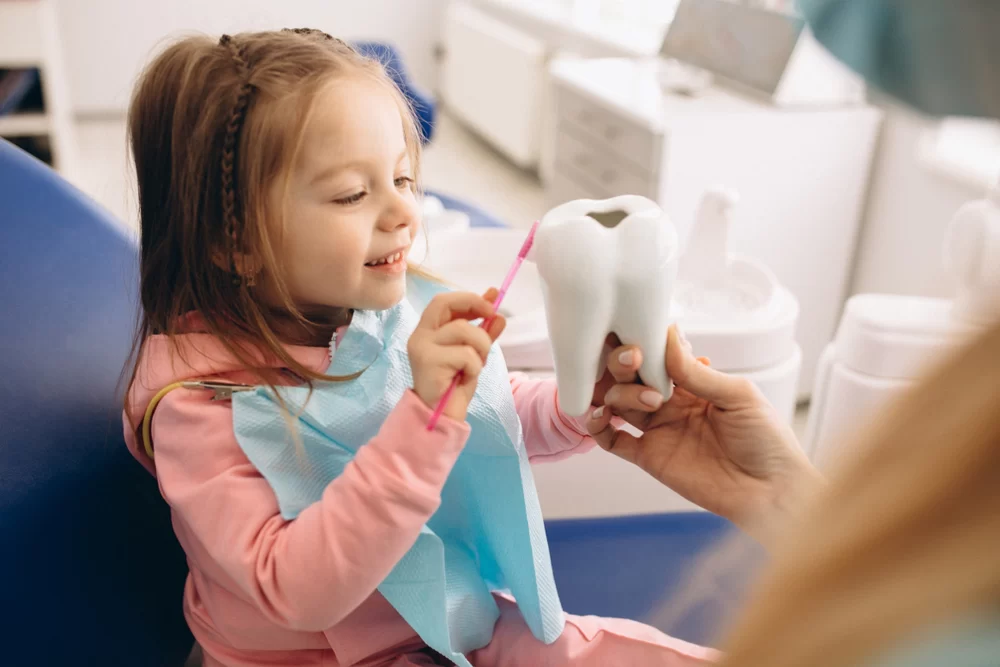
- Understanding Dental Challenges for Children with Special Needs
- The Importance of Regular Dental Care
- Tips for Preventing Dental Problems
- Creating a Dental Care Routine for Children
- Real-Life Case Study: Overcoming Dental Challenges
Understanding Dental Challenges for Children with Special Needs
Children with special needs may face unique challenges when it comes to oral health. Whether due to physical, developmental, or cognitive disabilities, these children are at higher risk for developing dental problems. It’s essential to understand these challenges so that you can better prepare and prevent issues before they arise.
For many children with special needs, tasks like brushing and flossing may be difficult due to motor skill challenges or sensory sensitivities. Additionally, certain medications taken for conditions such as epilepsy or autism can cause dry mouth, which increases the risk of tooth decay and gum disease. In some cases, children with special needs may have difficulty understanding the importance of oral hygiene, which makes consistent dental care even more crucial.
The Importance of Regular Dental Care
Establishing a consistent dental care routine for children with special needs is critical for maintaining their overall health. Dental problems can lead to discomfort, infections, and more severe issues, including difficulty eating and speaking. Regular dental visits and daily care routines can help prevent these issues and ensure a child’s smile remains healthy and bright.
Moreover, regular dental care can also help manage other health conditions. Poor oral health has been linked to an increased risk of systemic health problems, including heart disease and diabetes, which is especially important for children with special needs who may already face other medical challenges.
Tips for Preventing Dental Problems
Preventing dental problems in children with special needs requires a tailored approach to oral hygiene. Below are some practical tips that can help parents and caregivers maintain good oral health for these children:
1. Make Brushing and Flossing a Routine
Creating a consistent routine for brushing and flossing is key to preventing cavities and gum disease. It’s important to make this routine as easy and enjoyable as possible. For children with sensory sensitivities, try using soft-bristled toothbrushes and fluoride-free toothpaste that has a flavor they prefer. You can also try using visual or auditory cues, like a timer or a song, to help them know when the task is complete.
2. Use Fluoride-Rich Products
For children who are prone to tooth decay, using fluoride toothpaste and mouth rinse can provide an added layer of protection. Fluoride strengthens tooth enamel and helps prevent cavities. If your child has difficulty using mouthwash or swallowing toothpaste, speak to their dentist about alternative options that may be more suitable.
3. Address Dietary Habits
Children with special needs may have specific dietary restrictions or preferences that can affect their oral health. For example, many children with autism may have a limited range of foods they will eat, which can lead to an increased risk of tooth decay if they consume sugary or acidic foods frequently. Encouraging a balanced diet with plenty of water can help reduce the risk of dental problems. Avoid sticky, sugary snacks, and opt for healthy alternatives like fresh fruit and vegetables.
4. Monitor and Reduce Sugar Intake
Sugar is a primary contributor to tooth decay. While it may be tempting to offer sugary snacks or drinks as a reward, try to limit these as much as possible. Opt for healthier alternatives, and make sure that your child brushes their teeth after meals to remove food particles and sugar. If your child has a tendency to drink sugary beverages like juice or soda, try to replace them with water or milk.
5. Schedule Regular Dental Checkups
Even if there are no visible signs of dental problems, it’s important to schedule regular dental checkups for children with special needs. A dentist experienced in working with children with disabilities can offer tailored advice and support. Regular checkups allow the dentist to catch potential issues early on and provide treatments like fluoride applications or sealants to help prevent cavities.
Creating a Dental Care Routine for Children
Creating a routine that works for both the child and the caregiver is essential. A consistent, stress-free approach to oral care is beneficial for children with special needs. Here are some strategies to make dental care easier:
1. Break Down Tasks into Simple Steps
For children who may struggle with complex tasks, breaking down oral hygiene into simple, manageable steps is helpful. You can guide your child through each stage—like “first we brush the front teeth, then the back,” and “now we floss between the teeth.” Using clear, consistent instructions helps children understand what is expected of them.
2. Use Visual and Sensory Supports
Visual aids like charts or pictures can help reinforce the steps in the brushing and flossing process. For children who are sensitive to certain textures or sensations, try introducing oral care tools that cater to their specific needs, such as vibrating toothbrushes or flavored flossers.
3. Create a Positive, Reward-Based System
Rewarding children for their efforts can encourage them to take ownership of their dental health. For example, you might use a reward chart to track brushing and flossing achievements, and offer small rewards when they reach a goal. Praise and positive reinforcement go a long way in building a healthy habit.
Real-Life Case Study: Overcoming Dental Challenges
Meet Emily, a 7-year-old girl with autism who struggled with maintaining a consistent oral care routine. Her parents found it difficult to get her to brush her teeth, and she often refused to let them floss. After speaking with her dentist, they introduced a visual schedule with pictures of the brushing process, and Emily began to understand and anticipate each step. Over time, with positive reinforcement and sensory-friendly toothpaste, she became more comfortable with the process, leading to healthier teeth and gums.
This case highlights how a tailored approach, along with patience and consistency, can help children with special needs overcome challenges associated with dental care. Emily’s parents were able to work closely with her dentist to create a routine that made brushing and flossing easier and more enjoyable for her.
At Dentistry Toothtruth, we understand the unique challenges that come with caring for the dental health of children with special needs. Our platform provides expert advice, tailored products, and services that can help make dental care easier and more effective for children of all abilities. Whether you're looking for specialized dental tools or professional guidance, we have the resources to support you.







 Westgate Dental Arts
Westgate Dental Arts Coventry Family Dental
Coventry Family Dental Familia Dental
Familia Dental Dr. Daniel S. Fife, DDS
Dr. Daniel S. Fife, DDS Dentistry At Suburban Square: Michael I. Wollock, DMD
Dentistry At Suburban Square: Michael I. Wollock, DMD Comfort Care Dental
Comfort Care Dental The Importance of Oral Health Education During Pregnancy for a Healthy Pregnancy
The Importance of Oral Health Education During Pregnancy for a Healthy Pregnancy Why Skipping Dental Checkups Can Lead to Bigger Oral Health Problems
Why Skipping Dental Checkups Can Lead to Bigger Oral Health Problems Advantages of Porcelain Dental Restorations
Advantages of Porcelain Dental Restorations Best Tips for Brushing Your Teeth Properly for Healthy Gums: Essential Techniques for Oral Health
Best Tips for Brushing Your Teeth Properly for Healthy Gums: Essential Techniques for Oral Health How Can Diabetes Cause Tooth and Gum Problems? Preventing and Managing Oral Health Issues
How Can Diabetes Cause Tooth and Gum Problems? Preventing and Managing Oral Health Issues Healthy Habits for Promoting Good Oral Health and Hygiene: Tips for a Healthy Smile
Healthy Habits for Promoting Good Oral Health and Hygiene: Tips for a Healthy Smile